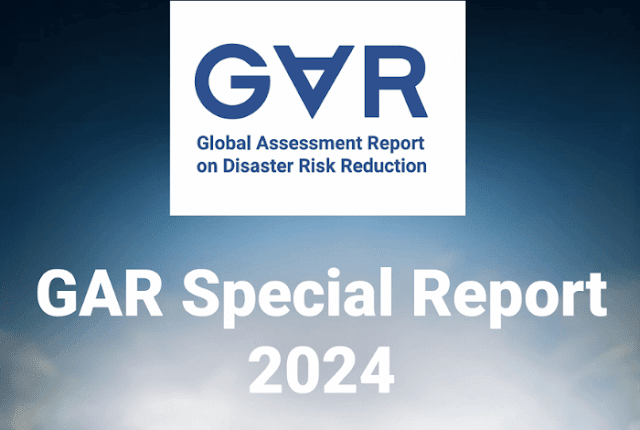The Global Assessment Report (GAR) is a comprehensive publication periodically released by the United Nations Office for Disaster Risk Reduction (UNDRR). It assesses disaster risks globally, examining their social, economic, and environmental dimensions. The GAR provides evidence-based information crucial for governments, civil society organizations, academics, and other stakeholders, guiding policy formulation and implementation.
Reasons Behind the Increase in Global Disaster Risks
Over the past two decades, the frequency and severity of disasters have significantly increased, posing severe threats to societies worldwide and causing substantial economic, social, and environmental damages. According to the GAR 2024 report, economic losses from disasters have doubled in the last twenty years, now averaging around $300 billion annually. The main drivers behind this increase include global warming, rapid and uncontrolled urbanization, inadequate infrastructure, and economic inequalities. Due to climate change, extreme weather events have become approximately 30% more frequent, increasing societal vulnerability and emphasizing the need for comprehensive disaster risk management strategies.
Forensic Analysis of Disasters (FORIN) and Its Importance
The GAR 2024 report introduces an innovative approach known as "Forensic Analysis of Disasters (FORIN)." This methodology thoroughly investigates the root causes of disasters by focusing not only on post-disaster responses but also on pre-disaster political, social, and economic factors. The FORIN approach identifies underlying issues, contributing significantly to building more resilient societies prepared to handle future disasters effectively.
Notable Case Studies and Findings from the GAR 2024 Report
The detailed case analyses provided in the report clearly illustrate critical factors in reducing disaster impacts:
| Disaster Type and Year | Root Causes | Lessons Learned |
|---|---|---|
| Mexico Earthquake (2017) | Non-compliance with building codes | Strict enforcement of building codes saves lives |
| Jamaica Floods (2021) | Poor infrastructure and urban planning | Planned urban development and resilient infrastructure reduce risks |
| Portugal Heatwave (2022) | Inadequate early warning systems | Effective early warnings significantly reduce fatalities |
| Horn of Africa Droughts | Climate change, weak economic structures | Climate adaptation and sustainable development are essential |
Importance of the GAR 2024 Report for Turkey
Turkey faces a variety of natural disaster risks due to its geographical location and characteristics, including earthquakes, floods, landslides, droughts, and forest fires. Over the past decade, the economic losses from disasters in Turkey have totaled approximately $40 billion. Notably, the 2023 Kahramanmaraş earthquake resulted in around 50,000 fatalities and left millions homeless, underscoring the critical importance of effective disaster management.
Specific Recommendations for Turkey from the Report
The GAR 2024 report outlines specific steps that countries with high disaster risks, like Turkey, should take:
- Strengthening Structural Resilience: Enhance and strictly enforce building codes, particularly earthquake regulations, and improve mechanisms for building inspections.
- Public Awareness and Education: Regularly implement disaster education programs and increase awareness-raising activities targeting all segments of society.
- Early Warning and Response Systems: Expand and improve early warning systems using advanced technologies, complemented by training citizens in effectively utilizing these systems.
- Ecosystem-Based Approaches: Strengthen natural barriers by preserving forests, sustainably managing water resources, and restoring ecosystems.
GAR reports offer globally recognized comprehensive analyses and solutions for disaster management. By adopting these recommendations, Turkey can significantly enhance its resilience and preparedness for a safer and more sustainable future.
References
UNDRR. (2024). Global Assessment Report on Disaster Risk Reduction (GAR 2024). United Nations Office for Disaster Risk Reduction. Retrieved from https://www.undrr.org/gar2024









0 Comments